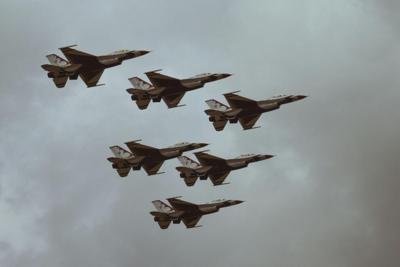Israel launched a massive military strike against Iran on Friday morning, targeting the country's nuclear facilities and killing top military commanders in what Prime Minister Benjamin Netanyahu called a necessary action to prevent Iran from developing nuclear weapons. According to reports from The New York Times, the assault hit Iran's main nuclear enrichment facility at Natanz, causing what Israeli officials described as significant damage to the underground complex that houses thousands of centrifuges used for uranium enrichment.
The strikes also targeted military bases, air defense systems, and residential areas in Tehran where Iranian commanders were located. Iran's supreme leader Ayatollah Ali Khamenei quickly appointed replacements for the killed military leaders, including Mohammad Bagheri, the commander in chief of Iran's military, and Hossein Salami, head of the Revolutionary Guards. The New York Times confirmed that the operation appeared to be years in the making, with Israeli intelligence gathering extensive information about Iran's nuclear sites and military leadership.
The attack demonstrates Israel's military superiority in the region while exposing Iran's weakened defensive capabilities, CNN reported. Iran's ability to respond effectively has been severely compromised after losing its top three military commanders and key nuclear negotiators in a single operation. The strikes followed a pattern similar to Israel's successful campaign against Hezbollah in Lebanon, suggesting months of careful planning and intelligence work.
CNN noted that Iran's response options are limited due to its degraded air defenses and the apparent infiltration of its security apparatus by Israeli intelligence. The timing of the attack came just days before scheduled nuclear negotiations between the United States and Iran in Oman, which Tehran immediately canceled following the strikes. The attack has left Iran counting extensive casualties and damage across multiple cities, with apartment buildings hit in what appeared to be targeted assassinations of specific individuals.
Iran retaliated by launching approximately 100 drones toward Israel, prompting nationwide alerts and the closure of Israeli airspace to civilian traffic, NPR detailed in its coverage of the unfolding crisis. Israeli air defenses worked to intercept the incoming drones while citizens rushed to stock up on essential supplies and sought shelter near protected areas.
President Trump issued warnings to Iran through his Truth Social platform, urging Tehran to agree to nuclear limitations before facing even more severe attacks. NPR reported that the president’s administration had been conducting nuclear talks with Iran but was not involved in the Israeli strikes, with Secretary of State Marco Rubio emphasizing that protecting American forces remained the top priority.
The International Atomic Energy Agency confirmed that radiation levels around the Natanz facility remained normal despite the damage, though the full extent of the destruction to Iran's nuclear program remains unclear. The strikes have created a regional crisis with multiple countries closing their airspace and oil prices surging as markets react to fears of broader Middle East conflict.








(0) comments
Welcome to the discussion.
Log In
Keep it Clean. Please avoid obscene, vulgar, lewd, racist or sexually-oriented language.
PLEASE TURN OFF YOUR CAPS LOCK.
Don't Threaten. Threats of harming another person will not be tolerated.
Be Truthful. Don't knowingly lie about anyone or anything.
Be Nice. No racism, sexism or any sort of -ism that is degrading to another person.
Be Proactive. Use the 'Report' link on each comment to let us know of abusive posts.
Share with Us. We'd love to hear eyewitness accounts, the history behind an article.